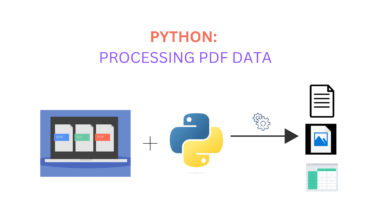CSV files are a common format for storing tabular data, making them ideal for tasks such as data analysis and machine learning. Python, with its robust libraries, offers several methods to read data from CSV files easily. In this blog post, we’ll explore methods to read data from CSV files using Python, providing examples and best practices along the way.
Introduction to CSV Files
CSV (Comma Separated Values) is a simple file format that uses commas to separate values. Each line in a CSV file corresponds to a row in the table, with each value in that line corresponding to a column.
Example of a CSV file:
Name, Age, City
John Doe, 28, New York
Jane Smith, 34, Los AngelesReading CSV Files in Python
Python has multiple methods to read CSV files, but the two most common ones include:
1. Using Python’s Built-in csv Module
2. Using the pandas Library
Method 1: Using Python’s Built-in csv Module
The csv module in Python provides functionality to work with CSV files directly.
Step-by-Step Guide:
1. Import the csv module
import csv2. Open the CSV file
with open('example.csv', 'r') as file:
csvreader = csv.reader(file, delimiter=',')3. Reading the header
header = next(csvreader)4. Iterating through rows
for row in csvreader:
print(row)5. Complete example
import csv
with open('example.csv', 'r') as file:
csvreader = csv.reader(file, delimiter=',')
header = next(csvreader)
for row in csvreader:
print(row)Method 2: Using the pandas Library
pandas is a powerful library for data analysis and manipulation. It can read CSV files directly into a DataFrame, an in-memory 2D data structure similar to a table.
Step-by-Step Guide:
1. Install pandas (if not already installed)
pip install pandas2. Import pandas
import pandas as pd3. Reading the CSV file
df = pd.read_csv('example.csv')4. Accessing data
print(df.head())5. Complete example:
import pandas as pd
df = pd.read_csv('example.csv')
print(df)When to Use csv Module vs. pandas
- Use the csv module when dealing with simple CSV files where pandas might be an overkill.
- Use pandas for more complex actions like data cleaning, analysis, and visualization.
Conclusion
Reading CSV files in Python is straightforward with the built-in csv module for simple tasks or the pandas library for robust data manipulation. Understanding these methods increases effectiveness when dealing with data in your Python applications.
Further Reading
- Python Documentation on the csv Module
- The pandas Library Documentation
To practice reading CSV files, try applying these methods to different datasets, and explore the various functions provided by `pandas` for data manipulation.
We hope this guide helps you confidently work with CSV files in Python. If you have any questions or tips to share, feel free to leave them in the comments below!
